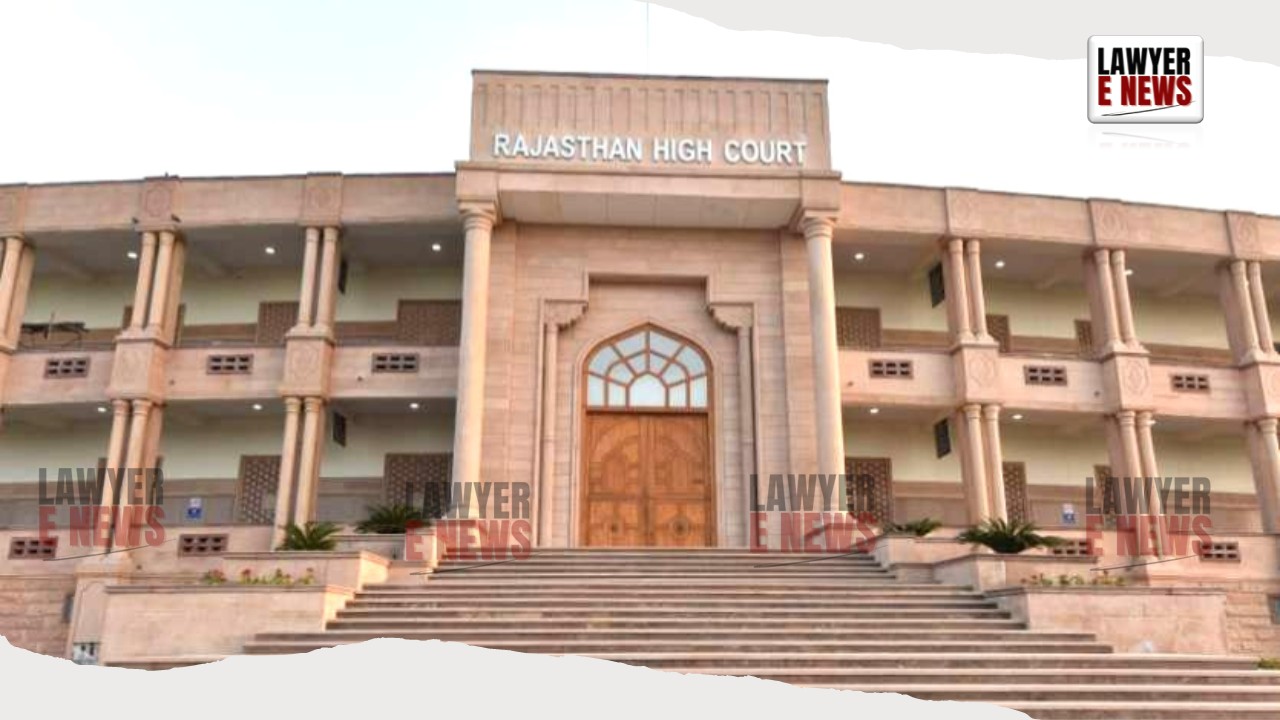-
by Admin
15 February 2026 2:36 AM



Transition to New Procedural Code Does Not Affect Ongoing Investigations, Clarifies Justice Monga
Jodhpur, July 09, 2024 – In a significant ruling, the High Court of Judicature for Rajasthan at Jodhpur, under Justice Arun Monga, elucidated the applicability of procedural law for ongoing investigations initiated prior to the enforcement of the Bharatiya Nagarik Suraksha Sanhita (BNSS), 2023. The judgment emphasized the imperative of adhering to the provisions of the Code of Criminal Procedure (Cr.P.C.), 1973, for such cases, ensuring procedural continuity and legal stability.
The case arose from a Criminal Miscellaneous Petition filed by Krishan Joshi, aged 65, seeking directions for a fair, impartial, and effective investigation into FIR No. 0068/2024 registered at Police Station Nokha, District Bikaner. The FIR, lodged on February 2, 2024, pertained to offenses under Sections 420 and 120-B of the Indian Penal Code (IPC). The petition also focused on procedural law applicability following the enactment of the BNSS, 2023, on July 1, 2024.
Justice Arun Monga clarified that investigations pending prior to the BNSS enforcement must proceed under the Cr.P.C., 1973, as mandated by Section 531(2)(a) of the BNSS. This section, part of the savings clause, stipulates that any ongoing investigation, trial, inquiry, or appeal must continue under the old procedural code if initiated before the new law’s commencement.
“Not only the pending trial or appeal, but even an inquiry and/or investigation, which is underway prior to coming into force of the BNSS, shall have to be dealt with in accordance with the provisions of Cr.P.C., 1973 and not under the BNSS, 2023,” the court noted.
Addressing the petitioner’s dissatisfaction with the ongoing investigation, the court recognized the petitioner’s grievance regarding the investigation’s lack of progress and impartiality. However, Justice Monga highlighted the need for the petitioner to exhaust all available legal remedies before approaching the higher judiciary.
“Liberty of a citizen, who is an accused, cannot be curtailed mechanically without being certain about the criminal culpability attributed to him,” Justice Monga stated. The court suggested that the petitioner could seek redress by approaching a superior police officer under Section 36 of the Cr.P.C. or a Magistrate under Section 156(3) of the Cr.P.C. for further investigation.
The judgment reiterated the necessity of procedural propriety, emphasizing the savings clause’s role in ensuring a smooth transition between the old and new legal frameworks. The court’s decision to treat the petition under Section 482 of the Cr.P.C., despite the initial registry objection converting it to Section 528 BNSS, reinforces the precedence of the old code for investigations initiated before the BNSS’s enforcement.
“The savings clause ensures that the repeal of an old law does not adversely affect any legal proceedings or rights that were established under the old code,” the court explained, underscoring the importance of legal continuity.
The High Court’s ruling provides crucial clarity on the procedural law applicable to ongoing investigations amid legislative transitions. By affirming the applicability of the Cr.P.C., 1973, for cases initiated before the BNSS, 2023, the judgment upholds the principles of legal stability and procedural continuity. This decision is expected to guide future cases, ensuring that ongoing legal proceedings remain unaffected by procedural changes during legislative transitions.
Date of Decision: July 09, 2024
